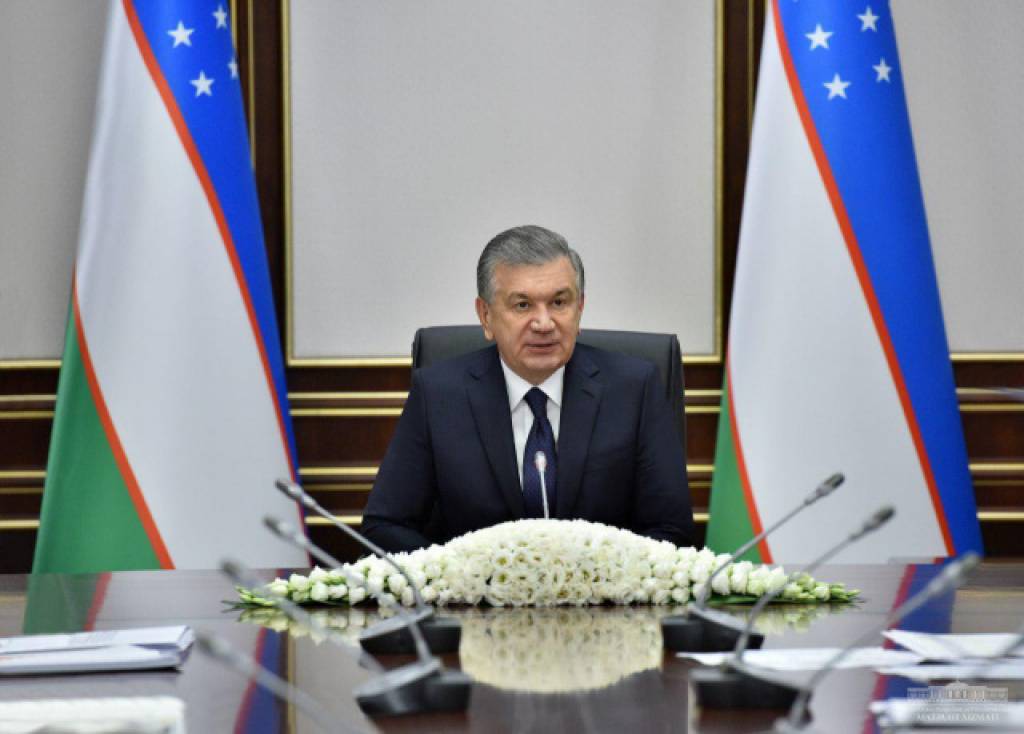Stability in hot water and heat supply is an important factor in ensuring people’s satisfaction

President of the Republic of Uzbekistan Shavkat Mirziyoyev held a meeting devoted to priorities for uninterrupted supply of hot water and heat to the population.
On October 4, President of the Republic of Uzbekistan Shavkat Mirziyoyev held a meeting devoted to priorities for uninterrupted supply of hot water and heat to the population.
At present, some of the existing boilers and heat supply networks are outdated and worn out. Foreign investment has never been attracted to the sphere.
Technological modernization has not been carried out for years, as a result of which the industry's energy costs account for 85 percent of revenues and losses reach 35-40 percent. Payables and receivables arise as a result of excessive consumption of energy resources and imbalance of payments.
In this regard, the President defined the tasks of radical reforming of the industry, renewal of existing capacities and improvement of management of the sphere.
It was noted that for qualitative organization of heat supply it is necessary to modernize industries’ enterprises, focusing on widespread use of energy-saving and multipurpose technologies based on the experience of Austria, Denmark, Germany and Finland.
Such innovations include a closed heat supply system based on the principle of circulation and reuse of heat. For example, the transfer of heat supply to a closed system in Tashkent will prevent the loss of 3 million gigacalories of heat in the amount of 300 billion UZS, save 320 million cubic meters of natural gas (160 billion UZS) and 85 million kilowatts of electricity (25 billion UZS).
Instructions were given at the meeting on restoring centralized heating of about 5,000 homes in 12 cities and transferring them to a closed system. Thus, such networks should be put into use in Bukhara and Chirchik in 2020 after the completion of tenders.

Tasks were set on implementation of similar projects in Andijan, Samarkand cities and Sergeli district of Tashkent with effective use of the World Bank loan for 140 million USD. Instructions were given on modernizing the heat supply network in Mirzo Ulugbek and Mirabad districts of Tashkent at the expense of a loan from the European Bank for Reconstruction and Development for 150 million USD. Measures should be taken to attract 780 million USD loan from Japan International Cooperation Agency to the project of introducing new technologies into the heat supply of Bukhara, Fergana, Kuvasay, Urgench and Nukus. Instructions were given on modernizing Angren Thermal Power Plant at the expense of 55 million USD from Asian Infrastructure Investment Bank.
The importance of formation of a competitive environment in the sphere through widespread introduction of market mechanisms, which first of all requires free tariff formation, was noted. In this regard, measures were identified on increasing the investment attractiveness of the sphere, attracting enterprises to heat supply system of Tashkent on the basis of public-private partnership.
In order to eliminate losses and reduce excess consumption, it is necessary to introduce an automated system for heat consumption metering system, indicated at the meeting.
There are almost 6 million individual houses in 119 cities and more than 11 thousand villages of Uzbekistan. Special attention was paid to the issue of providing their residents with heat in autumn and winter. The Ministry of Housing and Communal Services was instructed to cover the entire population with heat supply, not limited to apartment buildings, as well as develop a unified state policy in this direction.
Recommendations were given on improving the structure of the Ministry of Housing and Communal Services, uniting enterprises of heat supply in separate joint-stock company for increasing the efficiency of management of the sphere and active attraction of investments. This joint-stock company will be engaged in formation of new projects and attraction of funds from international financial institutions along with facilities’ operation.
It was emphasized that the ultimate goal of reforms implemented in the sphere is to ensure people’s wellbeing, improve the level and quality of life, justify their trust.
Responsible officials’ information on the progress of execution of instructions given earlier were heard and priorities for the future were defined.